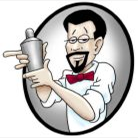I'm a licensed Aircraft Mechanic & Inspector with twenty five-plus years in the field. I've had a varied career so far, with time spent in the sheetmetal, mechanic, and inspection specialties. Most of my time is on heavy Boeing and McDonnell Douglas aircraft, of the passenger, cargo, and experimental type. This career isn't for everyone, but I enjoy it.
Please do NOT ask me to troubleshoot problems with your airplane, that is not what this Q&A is for.
I'm not sure as to what facet of being an aircraft mechanic you are referring to?
If you are talking about the "ride-on mechanic" part of the job; then yes, occasionally you'll talk to maintenance control via radio. But usually not. Usually you'll be talking in person to everyone you need to, and by phone when you need remote assistance or instructions.
As far as working at a maintenance base, which is where I have spent most of my career: You most always talk to everyone in person. Excepting when you use radios or cel phones to coordinate some operational checks of large aircraft.
In my current position as an engine shop floor inspector, I talk to everyone you'd expect. My supervisor, my manager, my co-inspectors, and the floor mechanics. We don't have a need to use radios in the shop environment.
I'm not terribly familiar with what you have there. My specialty lies more in large turbine aircraft, size DC-9 and up.
But, for my two cents worth: I guess it would depend on where the engine was stored. If it was outside, or somewhere damp, then sure, it would probably have corroded a little inside the cylinders maybe. But, do you know what the compression of the engine was before he took them out ten weeks ago?
Not to defend the guy. In my opinion, and as standard practice; you should ALWAYS plug holes just like those. Just to keep dust an dirt out of them. To say nothing about bugs (who may build things in there), and other foreign objects.
I really couldn't guess if that is what caused the low compression readings. But, if they really were left wide open for ten weeks, it certainly didn't help anything.
Sorry to hear of your difficulties. I hope you can get things sorted out without too much trouble.
There aren't any additional hurdles for your friend, as far as obtaining his mechanic's licenses from the FAA. Nor in keeping them; as long as he stays sober on the job.
Finding a job with an employer after he gets his licenses, is another matter entirely. If he doesn't have a driver's license, due to it being revoked; then not only will he have the problem everyone has in that situation, of begging rides to work. But he will have the additional issue of not being able to drive any company owned vehicles on the airport or facility. That usually means ramp vehicles, forklifts, etc. They almost always want driver's licenses for that.
Also, lots of airport security screenings, will do the ten year background checks. And won't always be willing to issue ramp access badges to someone with recent legal trouble like that.
Many companies have government contracts; and do those background checks as well. And wouldn't be able to use someone with extensive legal issues on any government type work.
My advice to him would be to hunt around until he finds a place that is willing to take him on; and keep his record clean while he gets experience on the job. Then, later on he can shoot for a better position somewhere.
For what it's worth: The aviation maintenance 'club' is often not a dry one. Drinking after work, and partying is the norm. Long hours, and often frustrating work feed it as well.
I won't play nanny to him. But it might be a tough road for a few years for him. He can do it though, if this is really what he wants to do for the rest of his life.
Yes. It is easy to find a job. IF you have your A&P license, AND you are willing to go to where the jobs are.
There are most often jobs available, not necessarily in your immediate area, and you might have to go with a contracting company. But there are jobs.
If you don't have your license, or you aren't willing to move at least yourself to wherever the work is; then there might be a harder time finding a job.
Stand-Up Comedian
 How do you fend off hecklers?
How do you fend off hecklers?
Bartender
 Which customers are the worst tippers?
Which customers are the worst tippers?
Professional Blogger
 How long did it take you before you could quit your day-job?
How long did it take you before you could quit your day-job?
Regular aircraft cannot fly along upside down like in an airshow. The reason for this is that the fuel and oil systems are designed for a one Gee environment. The fuel pickups in the tanks are on the bottom of the tanks in the lowest corners. The oil tanks on the engines feed from the bottom of the tank. So if you go upside down, those oil and fuel pickups will suck air. You can roll an airplane as long as you maintain at least one Gee. As the famous Boeing test pilot did when the Boeing 707 was having it's debut. For a very skilled pilot, such a maneuver would be possible. Airplanes that you see performing upside down, have either been designed from the start to do such things, or have been modified.
I would speculate that there are more contrails in the sky over Crimea, because it is a very interesting place, and there are planes taking lots of pictures of what is going on. That, and people leaving, on airplanes.
I don't reckon that they were chemtrails. I've never seen any evidence of chemical spraying devices on any aircraft I've ever worked on.
As far as to the existence of said chemtrails. We should look for the simplest explanation.
Is what we see streaming out behind aircraft at altitude, a condensation of water vapor around the warm engine exhaust?
Or is it a worldwide government plot, to plant mind control chemicals in aircraft (and somehow keep that all secret) to be sprayed into the atmosphere?
My money is on the simple condensation.
That sounds like a question for Adam and Jamie over at Mythbusters!
I don't really know.
After the initial air pressure equaliziation, which could be quite turbulent I suppose; you'd still have the air rushing along outside the open hatch. That would create some suction, courtesy of Bernouli's principle.
I guess as long as you stayed away from it, and were belted in, it might be all right.
A more immediate concern would be bringing the aircraft down to an altitude that had enough oxygen for humans to live.
And further: Opening an emergency hatch would be a Herculian effort for sure. All the emergency exits I've seen, are plug type hatches. Which means that whomever 'ripped' it out; would be fighting against the higher air pressure of the inside of the airplane, versus the outside air.
Those few psi don't sound like much, but it adds up to a lot of force holding that plug type hatch in place, even without a latch holding it.
-OR-
 Login with Facebook
Login with Facebook (max 20 characters - letters, numbers, and underscores only. Note that your username is private, and you have the option to choose an alias when asking questions or hosting a Q&A.)
(A valid e-mail address is required. Your e-mail will not be shared with anyone.)
(min 5 characters)
By checking this box, you acknowledge that you have read and agree to Jobstr.com’s Terms and Privacy Policy.
-OR-
 Register with Facebook
Register with Facebook(Don't worry: you'll be able to choose an alias when asking questions or hosting a Q&A.)